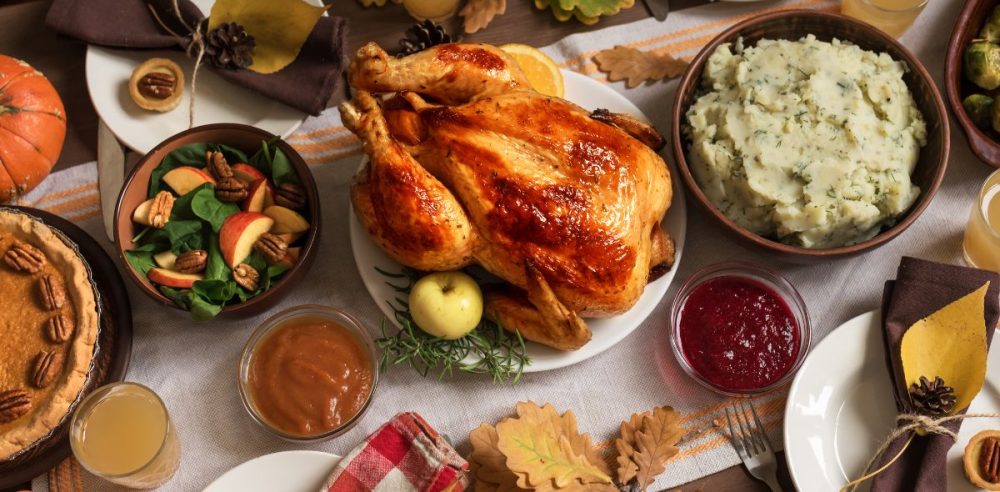Many people will experience the holiday bloat from eating too much over the holidays.
The uncomfortable feeling of trapped gas or fullness in the abdomen can persist from minutes to hours, making you feel more like a waddling turkey than someone trying to enjoy Thanksgiving.
Common food triggers include lactose and fructose, often found in items like asparagus, cauliflower, and various fruits, as well as artificial sweeteners like mannitol and sorbitol, reported U.S. News & World Report.
“As we age, many of us lose the enzymes needed to effectively digest these carbohydrates, which can lead to bloating,” said Baylor College of Medicine gastroenterologist Dr. David Szafron, per U.S. News.
“Some of these are asparagus, cauliflower, garlic, onions, mushrooms, apples, cherries, mangos, peaches, pears, watermelon, chickpeas, wheat flour, most pasta, cream cheese, cow’s milk, oat milk, soy milk, beans, tofu, sausage, cashews and pistachios,” added Szafron.
To tackle bloating, it’s not just about tweaking your diet—it’s also about embracing an active lifestyle and promoting good bowel habits.
Think of exercise as your secret weapon against that uncomfortable bloat. Exercise, whether it’s a brisk walk or yoga, helps to stimulate your bowels.
Staying active can greatly enhance your comfort in your holiday attire (well, that and elastic waistbands).
Other tips to relieve the bloat include digesting peppermint oil capsules (not recommended for those prone to heartburn), gas relief pills, massaging the abdomen, taking a warm bath, gradually increasing fiber, replacing sodas with water, avoiding chewing gum, cutting down on salt, per MedicalNewsToday.
However, MedicalNewsToday reported that not all bloat is due to what we eat. Digestive issues such as IBS, menstrual symptoms, hormonal changes, bacterial overgrowth, infections, and diseases affecting the liver can also play a role.
If you’re noticing bloating more than once a week for several months, it may be helpful to keep a food diary to identify which foods are causing the issue. However, if the bloating becomes severe enough to lead to weight loss, vomiting, or intense pain, it’s important to consult your doctor, stressed Szafron.


